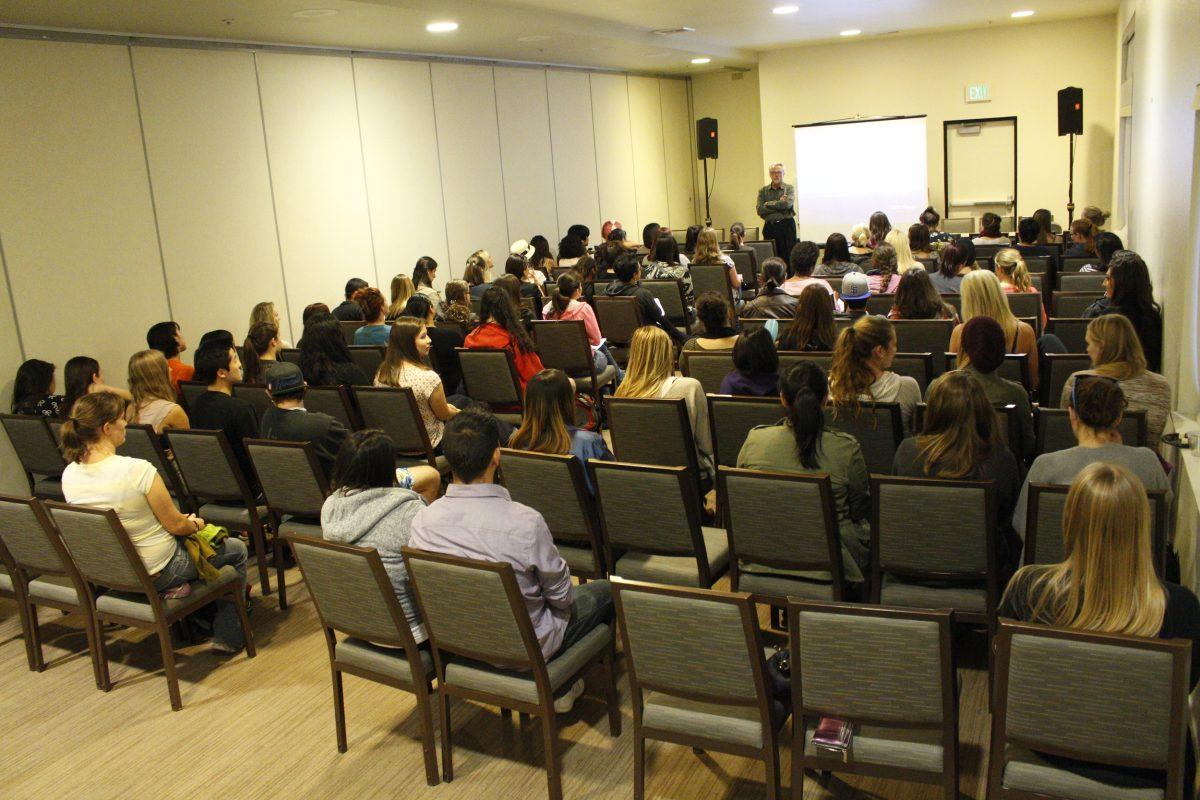One would never think that advertisements and the flaunting media would be the main factor that says something about American people as a whole, but in the film, “Killing Us Softly 4: Advertising’s Image of Women,” the hidden messages in the commercials seen are exposed for what they are. Most of the time, their messages come off as very offensive if taken in the wrong way.
Students at Sonoma State University were given the chance to partake in watching this film last Thursday in the Cooperage. It was put on by La Ventana, a treatment program that specializes in therapy for people with eating disorders. La Ventana is Spanish for “the window,” and the reason for the name was to create some sort of establishment to be a window-out of a life of disordered feelings.
The staff from the La Ventana treatment center stayed around for the event and spoke a little about advertising themselves.
“My dream is this,” said Program Director William Formaker. “Create a place of haven for these young women and young men as well, to get together once every other week to talk about these issues.”
Formaker intends to establish a more community-based organization with their branch location in Santa Rosa, making this window-out into a refuge center for those whose lives have been damaged by things such as eating disorders, substance abuse, etc.
The Chief Executive Officer, Steve Zamarripa, founded this organization as a means to help others. His mother suffered from an eating disorder and he lost her at a young age. The program is designed to get people involved whether or not they have suffered through these disorders and abuses.
A particular concern pointed out in the film was the media’s portrayal of women in a way that has objectified them as selling tools for about every piece of merchandise. For example, there was a Michelob ad in which the model is edited to look like the bottle of beer.
Advertisements and commercials seem to degrade what women think of themselves through messages such as “Tired of that hair, skin, breasts of yours?” and then go on to say how their product will solve all problems. It displays the idea that how someone already is seems to not be good enough.
These proclamations of propaganda publicly exhibit their products through use of models, and according to the film, perform hours of photo-editing for the images of these models. As a result the ideal woman becomes this fake figure that is impossible to achieve and thus the products keep selling.
More and more this idea of being this perfect image of a person is being targeted to children. Formaker stated how a recent survey showed that 80 percent of girls have been put on some sort of diet by the age of 10. A parent who takes their child with them as they go shopping would unwillingly be exposing their children to these ads that are constantly thrown at them from every angle.
The influence of the media and business affects the youth early, and with these messages thrown and tossed for their whole life, some would say it creates an almost brainwashing effect as an effective advertisement is intended to do.
A weight-loss ad that suggests something like “You could lose a little weight,” can easily be interpreted as “Your figure is not good enough.” A student mentioned during the discussion afterwards how no one should be told how they should be. It takes away a certain freedom, and at times it just hurts.



































